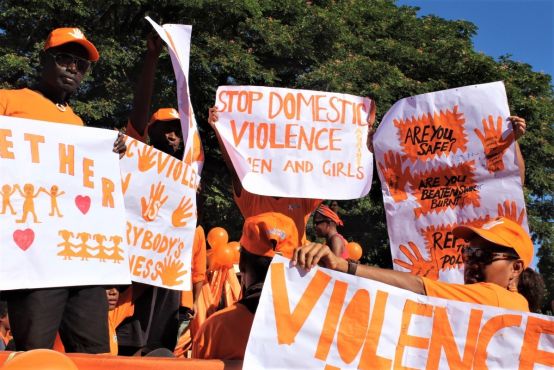
About Kiribati
Kiribati (pronounced Ki-ri-bass) is a beautiful island nation, made up of low-lying atolls in the middle of the Pacific Ocean, approximately one half of the way between Australia and Hawaii. While it is one of the smallest countries in the world in terms of land mass, it is one of the largest in terms of maritime borders.
Historically, Kiribati was not charted on maps until the early 19th century when it became a British Protectorate and later a colony. The following 100 years saw widespread environmental damage due to phosphate mining, WWII battles, and hydrogen and nuclear bomb testing by the USA and United Kingdom. Kiribati became an independent republic in 1979.
The majority of the 119,000-person population live in the area known as Gilbert Islands, and more than half of that population lives on Tarawa Atoll.
Today, Kiribati is exceptionally vulnerable to the effects of climate change, with most of the country’s atolls rising less than three metres above sea level.
Australian volunteers have supported a wide range of partner organisations in Kiribati to achieve their development goals since 1982.
Learn more about the Australian Volunteers Program's work in Kiribati.
Browse our current assignments in Kiribati.
Key things to consider about volunteering in Kiribati
- Plan how you will handle isolation. Kiribati is a culturally rich and beautiful country, but its urban centres are small and distant from other places. For example, there are no direct flights between Kiribati and Australia, with the most regular international flights being between Tarawa and Nadi, Fiji. Consider how you will handle this form of isolation.
- Kiribati is amongst the most vulnerable nations on Earth to climate change. Read more in the climate section below.
- The diet in Kiribati is very fish-heavy. The range of available food is more limited than what many are used to in Australia. Access to fresh fruit and vegetables can be limited.
- There is an active community of foreigners living in Kiribati. Ask questions and seek guidance from them. Connecting with other foreigners, as well as members of the community, is key to a successful and enriching experience in Kiribati.
- Kiribati time: Approaches to time and timing are different to that in Australia. Service delivery and the pace of office life is likely to be slower than what you are used to in Australia.
Culture and religion
Culture in Kiribati has been preserved for centuries, due to how isolated the islands are in the middle of the Pacific Ocean. Customs can vary by island, but many remain true to traditional practices.
Elders and church leaders are highly respected as the key decision-makers in the community and expect to be shown respect by members of the community and visitors.
Religion
Following the arrival of missionaries in the 19th century, Christianity became the main religion in Kiribati, with 57% of the population now practicing Catholicism. Religion plays a big part in everyday life with many people living in church compounds and attending church on Sundays.
Dress
Casual outfits are considered appropriate for most occasions. However, it is important to dress modestly and cover your knees when visiting the maneaba, church compound, or other formal events.
Language
The official languages of Kiribati are taetae ni Kiribati (an Austronesian language) and English. Volunteers are encouraged to learn basic phrases in Kiribati to show respect to community members and colleagues.
The program provides funding to support language lessons. More information on this process will be available during the onboarding process.
Explore our Pride Guides
LGBTQIA+ program participants must be aware of the country's context before undertaking an assignment. Pride Guides are designed to introduce key issues related to people with diverse SOGISEC and their participation in the program.
Learn more
Day-to-day life
Climate
Kiribati experiences a hot, humid, tropical climate with an average air temperature of 28.3°C. While temperatures remain consistent throughout the year, there are two seasons 'te Au Maiaki' - the dry season and 'te Au Meang' - the wet season.
It is important to note the effects of climate change on day-to-day life and weather patterns in Kiribati. According to the World Bank, “as an extremely isolated and very low-lying island nation, Kiribati faces considerable risk from climate variability and sea-level rise. The potential risk of permanent inundation, and land and marine ecosystem degradation link climate change intrinsically with development.”
Telecommunications
Kiribati has internet connectivity, and mobile services are available. However, the speed and coverage might vary across different islands within the country.
Food and dining
As an island nation, Kiribati has an abundance of fresh fish, however, fresh vegetables can be in short supply. Kiribati relies heavily on imported produce.
Supermarkets are available on Tarawa and offer typical goods such as meat, vegetables and canned food. Options may be limited for vegetarians and vegans, so it is recommended to bring specialty items from home.
Alcohol can be consumed at bars and nightclubs. However, some communities do not allow alcohol, and drinking in public places should be avoided.
Accommodation
Housing typically consists of houses of two to three bedrooms, a bathroom, a kitchen, and living room. Due to a short supply of rental accommodation, the in-country team will seek to secure appropriate accommodation for volunteers before they arrive in-country.
Find out about our in-country allowances
Transport
Minivans are the main form of public transport in Kiribati and provide an economical option for travelling around the island. Cars can be rented, however, if you intend to use a car more frequently, purchasing a used car or a motorcycle is recommended.
Personal Safety
Kiribati is considered safe, but volunteers should take sensible precautions. It is imperative that respect is shown to community leaders, community members, and colleagues. Disrespect will not be tolerated and will lead to exclusion from community events. Personal safety issues constantly evolve, we recommend you keep in contact wtih
Mobility and Accessibility
We’re committed to ensuring that international volunteering is inclusive and accessible to Australians from a range of backgrounds, with diverse perspectives, identities and abilities.
To support this, access and inclusion plans are available for volunteers with disabilities to assess their needs and ensure their living and working requirements are fully considered. Indigenous Pathways is an Indigenous-led program that focuses on providing culturally safe, flexible and tailored support for Aboriginal and Torres Strait Islander volunteers.
Partner spotlight in Kiribati
Discover how two of our partners in Kiribati and Solomon Islands are working to enhance gender equality and eliminate violence against women.
Learn more
Personal safety
When it comes to your safety and security you must be willing to adapt your behaviour and lifestyle to minimise the potential for being a target of crime. Like anywhere in the world, crime does exist in Kiribati. While Kiribati is considered relatively safe, volunteers should take sensible precautions. Seasonal preparedness is necessary whilst on assignment as Kiribati is prone to cyclones.
It is imperative that respect is shown to community leaders, community members, and colleagues. Disrespect will not be tolerated and will lead to exclusion from community events.
Mobility and accessibility
We’re committed to ensuring that international volunteering is inclusive and accessible to Australians from a range of backgrounds, with diverse perspectives, identities and abilities.
To support this, Access and Inclusion Plans are available for volunteers with disabilities to assess their needs and ensure their living and working requirements are fully considered. Indigenous Pathways is an Indigenous-led program that focuses on providing culturally safe, flexible and tailored support for Aboriginal and Torres Strait Islander volunteers.
Before applying for a volunteering assignment in Kiribati, please do some further research on living in Kiribati and the organisation you are hoping to volunteer with. Successful applicants will have the opportunity to discuss expected living and working arrangements with their recruitment officer.